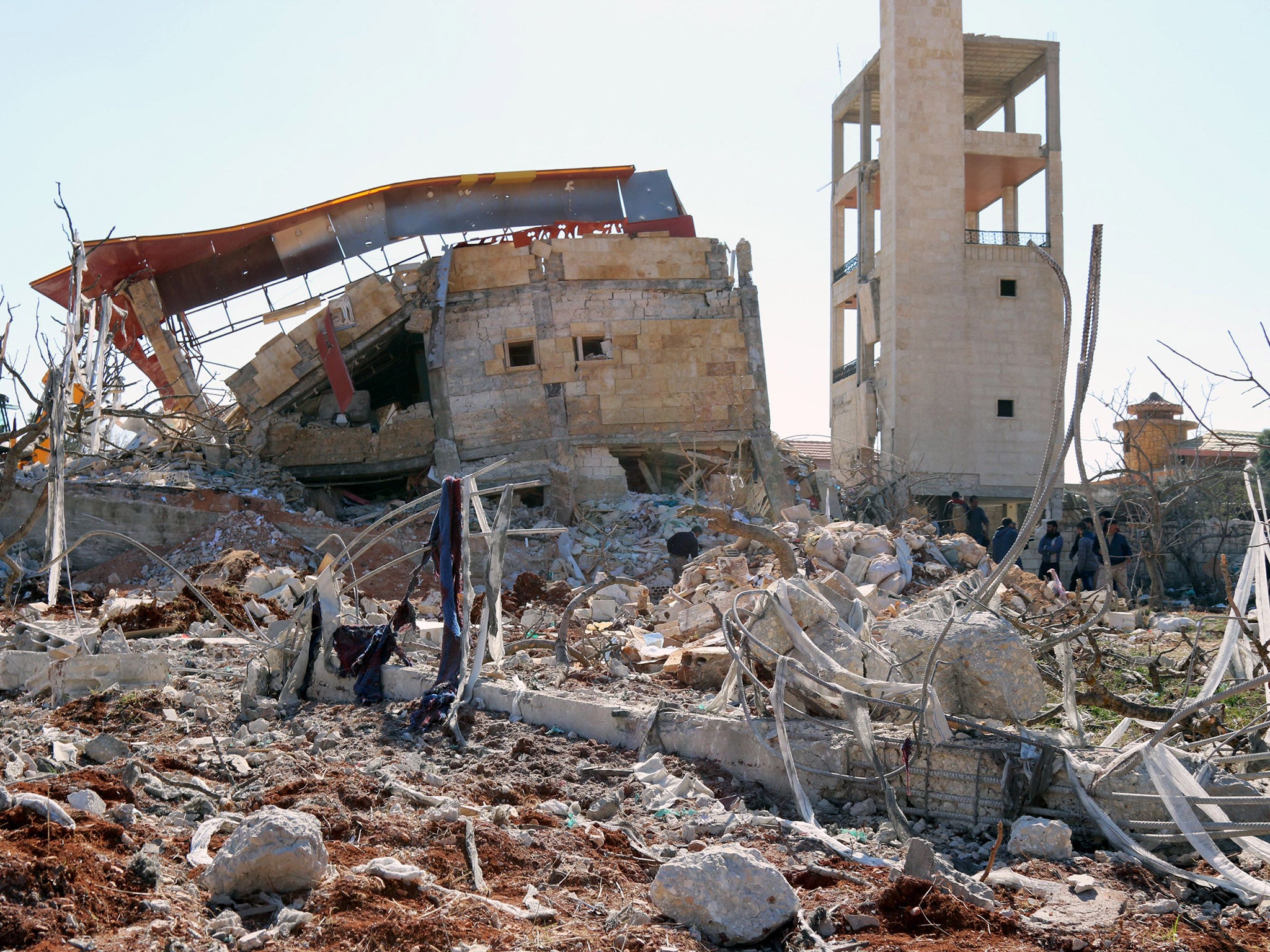Russia's airstrike on a Syrian hospital was no accident. It was a cold-blooded, targeted attack
If the British Government insists on only accepting a small amount of refugees then the least it could do is stop Russia from destroying Syria's healthcare system

Monday saw yet another targeted strike in Syria. Not against Isis or against anyone threatening. No, the latest attack was another deplorable airstrike on a Medecins Sans Frontieres (MSF) hospital that was providing vital medical care to the region surrounding Maarat al-Numan.
According to a monitoring group in the area, the attack resulted in more than nine people’s deaths – including one child’s – and was carried out by Russian forces. Only two days earlier they had agreed to limit hostilities in Syria.
This was no accident. Four rockets hit the hospital: it was a targeted attack, and a cold-blooded one too.
Between each rocket the forces waited 15 minutes. This "double-tap" tactic, also employed by US drone strikes in the conflict, allows locals to gather at the targeted site and help the casualties, before unleashing its next bomb.
Apart from the nine dead, eight missing and dozens injured, this strike (like several others) has left the local population without access to vital medical services. According to MSF, the local population of 40,000 people can now be added to the long list of civilians “without access to medical services in [the] active zone of conflict” that is Syria.
This isn’t the first time such an attack has been carried out. Fourteen medical facilities in Syria have been hit and turned to dust since the start of the year. MSF has even gone so far as to say that hospitals are no longer places where civilians can recover safely. That’s how bad the situation has become. Innocent people are no longer able to safely recover from being caught in the crossfire of a civil war, because foreign forces are insistent on bombing hospitals in ways that maximise civilian casualties.
2015 was the worst year on record for healthcare workers in Syria, with over 640 killed since the crisis started. Foreign forces need to take responsibility for these blatant attacks on medical facilities, and not only because brave doctors are choosing to go into conflict zones and getting killed for their heroism, but because it impacts civilians all over the country. A shocking 40 per cent of civilians in Syria no longer have access to basic healthcare.
If the UK government wants to be as tough on immigration and turn back as many refugees as it says it wants to, it needs to start doing more than just denouncing such attacks. It needs to work with Russian forces, and demand that they stop targeting hospitals. The "collateral damage" defence can only go so far, especially when 1000 civilians, including 200 children, have already been killed since September 2015 by Russian planes, according to the Syrian Observatory for Human Rights.
The British Government cannot stand by and let other nations bomb crucial hospitals and civilians, yet also take an aggressive stance against those who flee these bombs. It needs to do more to help refugees, but if it insists on only accepting a small amount, the least it could do is prevent civilians from becoming refugees in the first place.
All forces, whether in the US-led coalition or Russian, need to come to their senses that the targeting of civilians, especially helpless ones in hospitals, is completely unacceptable, especially when the number of medical volunteers being killed by airstrikes is fast approaching 1000. This violation of international laws cannot become the new norm of a conflict.

Join our commenting forum
Join thought-provoking conversations, follow other Independent readers and see their replies